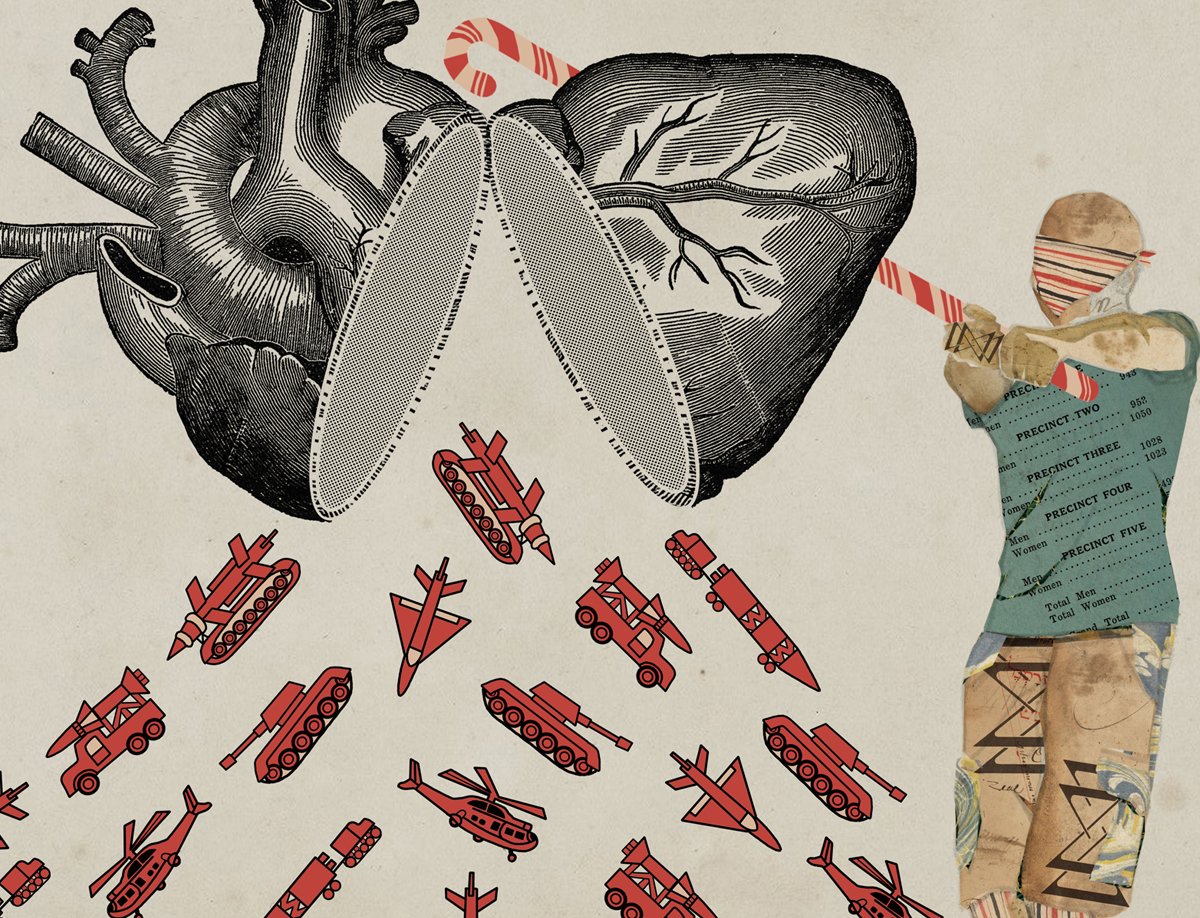“Is your glass half empty or half full?” asked the mole. “I think I’m grateful to have a glass,” said the boy.” Charlie Mackesy, The Boy, the Mole, the Fox and the Horse
My family has grown accustomed to me going off on tangents in which no one is particularly interested. On a recent vacation, as I was thinking about this post, I suggested a game we could play to expand aphorisms related to non-dualism. Surprise, surprise: the suggestion was met universally with the response, “Are you kidding me??” Suffice it to say, the game never materialized. So now I’m hoping, as readers of this blog, that you may want to play. Don’t stop now. At least consider reading through this post and consider weighing in.
Here’s the basic idea.
Questions related to dualism get thrown around in spiritual circles. Am I my body or my mind? How much relative weight should I put on physics and metaphysics? Do I really have a dark side and an enlightened side? Do I have a soul or is all life simply neurological manifestations of the brain? Am I just a concoction of chemicals or do I have agency and consciousness? What is the nature of good and evil? Am I leading a spiritual life in a physical body or a physical life in a spiritual body? Can I be expansive AND reductionistic. While no one knows the absolute “answers” to these questions, most people have opinions. Here are mine.
Quite simply, I think we have a higher self and a lower self. To me, the higher self is all about acceptance, forgiveness, gratitude, and compassion; the lower self is fueled by negativity, identification, greed, and desire. The challenge of life is to develop the higher states and diminish any dominance of the lower states. It seems like there may be a Mason-Dixon line in our own lives! Seriously, and more importantly, the goal is to reach a state of harmony in which dualism doesn’t exist. In that harmonious state, there is only love, wisdom, peace, and joy. No problem, right? Let’s take a look at each component.
Below, I have defined each component and offered some pithy aphorisms and principles that may get us started on the path to non-dualism. The first set is designed to develop our higher selves; the second set is to diminish any dominance in our lower selves. Your job, if you choose to play, is to expand the list of aphorisms under each dynamic.
Possibilities for developing our higher self:
Acceptance: Receiving or being received as adequate or suitable; welcoming whoever and whatever comes our way, i.e. radical acceptance. Some aphorisms to ponder:
- Life is limited and won’t last.
- We are not perfect.
- Plans don’t always work out.
- Dreams rarely come true.
- Reciprocity is rare.
- There are unexpected twists and turns in the road.
- Style often trumps substance.
- Most people aren’t all that interested in you.
- People have different priorities, interests and styles.
- In this moment, I am here only because all the sources of All conspired impossibly.
- Your Turn;
If we can accept the truth of these aphorisms, we may be able to stay calm in whatever crisis we face so that we can live in equanimity.
Forgiveness: A conscious, deliberate decision to release feelings of resentment or vengeance toward a person or group who has harmed you, regardless of whether they actually deserve your forgiveness. Some aphorisms to ponder:
- We are all flawed.
- Most people have good intentions.
- Change doesn’t happen as fast as you would like.
- Letting go frees us.
- Hanging on traps us.
- People make mistakes and commit unforgettable offenses.
- Life is lighter when we don’t carry around grudges and grievances.
- Your turn:
If we can fully release what has happened in the past as reasons to shut down our availability and generosity in the present, then forgiveness will become much easier, so that we don’t have to carry around old baggage.
Compassion: The feeling that arises when you are confronted with another’s suffering and feel motivated to relieve that suffering. Some aphorisms to ponder:
- Most people have suffered or are suffering.
- Buried traumas raise their heads in unexpected ways and at unexpected times.
- No one can fully know the conditions and context in which a person grew up.
- Replacing contempt with compassion reduces divisiveness and anger.
- Your turn:
If we can experience boundless compassion to forgive, then we can welcome each moment as new, so that we can see each new encounter as endless possibility.
Gratitude: The quality of being thankful; readiness to show appreciation for and to return kindness. Some aphorisms to ponder:
- There is so much to notice.
- Focusing on the present is more satisfying than focusing on what’s missing.
- Giving thanks is more filling than feeling cheated.
- The sources of all that brought us into life are also grateful for us.
- Your turn:
If we feel grateful for what we have in life, then we can view the world through a more positive lens, so that thankfulness replaces bitterness.
Possibilities for diminishing the dominance of our lower self:
Negativity: Habitual skepticism and a disagreeable tendency to deny, oppose or resist suggestions. Some aphorisms to ponder:
- Smile on every day.
- Bless and release.
- Acknowledge negatives, form a balanced perspective, create an inspiring vision.
- Focus on possibilities vs. probabilities.
- Quit saying, “if only”, “it’s not fair” and “I should have . . . “
- Consider that younger versions of yourself are still protesting the pain and fears of the past and are waiting to be welcomed into a new you.
- Negativity drains our own energy and the energy of those around us.
- Your turn:
If we can accept, forgive, and be grateful for younger versions of ourselves, then we may be able to receive now what we didn’t before, so that we can free ourselves from the prison of the past.
Identification: Avoiding the truth of who we really are when we say, “I am.” Some aphorisms to ponder:
- Don’t say “I” and think it is “You.”
- Don’t let roles define you.
- Don’t hide behind titles.
- Don’t measure your worth materially.
- Increase consciousness; reduce identification.
- Destroy any illusions you may have of control or certainty through your identification with any religion, race, nation, state, or sports team.
- Even if you are right, it’s no excuse to be righteous.
- Your turn:
If you continuously create new versions of yourself, we can realize a new YOU without forced standards or imposed rules, so that you can rise out of narrow ways of identifying and restricting yourself.
Desire: A strong feeling of wanting to have something or wishing for something to happen. Some aphorisms to ponder:
- Shift your energy from primal to vital, to spiritual.
- Focus on what you have vs. what you don’t have.
- Just because you want something doesn’t mean you have to be attached to getting it.
- Practice restraint.
- Much desire is simply a desperate grasping to make up for past deprivation.
- Your turn:
If we practice mindfulness, right thinking, right feeling, right acting and right speaking, then we can let go of all attachments to all desires, so that we avoid a sure path to suffering.
Greed: An intense and selfish need for something, especially wealth and power. Some aphorisms to ponder:
- Replace “More, More, More” with “Enough, Enough, Enough!”
- Put service above self.
- Seek growth instead of comfort and pleasure.
- Create a more meaningful life by giving generously instead of getting or taking selfishly.
- Your turn:
If we naturally come into balance in your life, then we don’t have to continually fix or engineer ourself or find empty replacements to fill voids, so that we can simply become gracious and grateful.
So there you go. A whole list of aphorisms and principles that may help you grow into a harmonious, non-dualistic space. I would love to hear what aphorisms you would add to the lists. Caution: Don’t ask your family to play this game.
These aphorisms and principles are meant to help us replace whatever internal tapes and messages we have running through our brain with a whole new set of statements that will lead to a more harmonious, peaceful, wise and loving life. Oh, and by the way, they can all be applied to politics on local, state, national and global levels. May it be so.
Also published on Medium.




Love it Ricky-thank you!